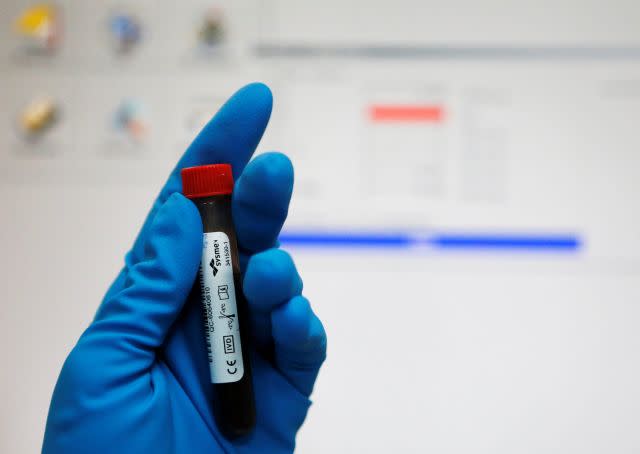Russia has suffered a new blow to its hopes to compete in the Summer Olympics

Russian officials, under intense scrutiny in a growing doping scandal, are mounting a rear-guard effort to lift a ban on their track and field team for the Rio de Janeiro Olympic games this summer. But, in a new development, the Russian Olympic Committee admitted this weekend that eight of the country’s athletes tested positive in banned substance retests for the 2012 London Olympic Games, on top of the 14 athletes it had already admitted doped in the previous 2008 games in Beijing.
The admission follows a report Friday (May 27) by the International Olympics Committee that, in a re-examination of blood samples from the London games, 23 athletes from six countries tested positive for banned substances. Russia did not disclose the names of its eight athletes who were in the group, and the IOC said it will reveal none of the names until it receives the results of a second round of blood tests.
The International Association of Athletic Federations (IAAF) is to decide June 17 whether to lift its suspension of Russia’s track and field team from Rio. Russia’s admission regarding the eight athletes in London is part of its strategy toward Rio: While it has admitted no wrongdoing voluntarily, it has made an assertive show of vigilance once caught, suggesting that it hopes to be able to field at least part of its team in the Summer Games this August.
The latest news follows a slew of reports of widespread Russian doping in international competition. Last November, the World Anti-Doping Agency (WADA) reported a systematic effort by Russian track and field officials to use banned substances, including possible criminal actions and bribery of officials. In March, ARD, the German broadcaster, reported that Russian anti-doping authorities were alerting athletes in advance of coming doping tests. And on May 10, WADA said it was investigating a report on CBS in which Grigory Rodchenkov, the Russian head of the blood testing laboratory at the Sochi Winter Games, described an industrial-scale doping effort that allowed many of the country’s top athletes to escape detection of doping. WADA had already revoked the license of Russia’s anti-doping lab in April.
Some experts say it will be hard for the IAAF to maintain a total ban on Russia’s track and field team, mainly because such an action would be unprecedented. But working against Russia is that the reports come at a time of heightened scrutiny of international competition. Scandals have engulfed not just the Olympics, but international competitive chess and World Cup football. The IAAF may want to avoid any appearance of treating doping lightly, and thus tainting future games.

Sign up for the Quartz Daily Brief, our free daily newsletter with the world’s most important and interesting news.
More stories from Quartz:

 Yahoo Finance
Yahoo Finance 